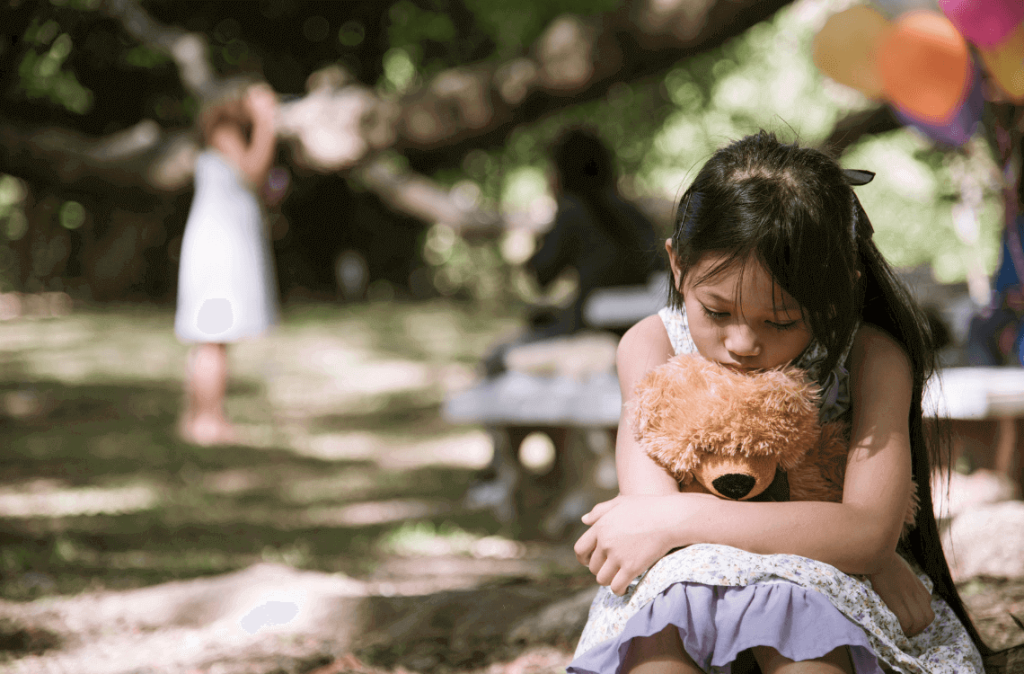Even if starting school is a significant milestone for your children, being rejected is unpleasant.
Whereas for you, sending your precious ones to school is one of the most worrying times of your life.
Knowing how difficult school can be, you just want good things to happen to them and hope that they get along well with the other students.
“You’ll have fun and make plenty of friends there”, is one of the strategies you and most parents use to get your children excited about the new world they’re about to enter.
But what if, at the end of the first day, your kids come home and tell you that no one wants to be their friend and that they’re being rejected from school groups?
You must think, ‘Oh no! That must have been terrifying and upsetting for my kids!’
But don’t get too far ahead of yourself and don’t jump the waggon.
It is your responsibility as parents and guardians to guide your child through this difficult time. This is a life experience that may teach them how to cope in the face of adversity.
A study found that being rejected by peers has devastating consequences for a child’s future social-cognitive development.
So, it’s important that you investigate the factors that could contribute to the rejection.
Once you know what the reasons are, then you can figure out how to help your kids out.
To get you started, here is a list of things you can do to support your son or daughter if they are being rejected by their peers.
Assess the Situation
It’s easy to get into a full mama or papa-bear mode the moment you learn that your child is being rejected by anyone at school.
Before jumping to your child’s defence, try to remain calm and listen to the entire story.
Encourage them to speak up and tell you what happened without being emotionally involved.
Remember that your child will imitate whatever you do—if you become upset about the situation, chances are they will be as well.
Validate Your Child’s Feelings
When a child speaks, he or she is attempting to gain understanding and security from someone they trust—you!
As a parent, your opinion is extremely important. Try to validate their feelings and avoid criticising or dismissing anything they choose to share with you.
Tell them being rejected is part of meeting new people and assure them that they are in good hands.
Example of Empathy
Use this opportunity to teach them empathy after you’ve heard their entire story and made them feel safe.
Your children must also learn to be considerate and understand that their peers, like them, may prefer to play alone or may not feel comfortable sharing their toys on that particular day or time.
This way, your kids will avoid having negative connotations about their peers.
Additionally, they will also avoid thinking that it has anything to do with them, which may cause them to think less of themselves.
Encourage Problem-Solving
Your child is smarter than you may think.
Sometimes all they need is a chance to demonstrate that they are capable of thinking of a way out or how to react in a given situation without you having to tell them how.
All they need is a gentle nudge from you. For example, you could say,
“I know you’re upset because your friends didn’t come over. What are you going to do to make yourself feel better?”
This gives them the opportunity to consider how to solve the problem.
Other Activities for Your Child
Has your child discovered any other interests? Perhaps this is an opportunity for them to discover new hobbies such as journaling, crafting, swimming, or learning new skills such as cooking or baking.
This can be a healthy coping mechanism for your children at the time or something they can look forward to while taking a break from socialising with friends their age.
This way, your children will not feel too pressured about having to make friends and follow the flow.
How You Can Help Your Child
When it comes to your children making friends, it is not recommended that you be overly involved.
However, there are other ways you can help in situations like this.
First, observe how your child interacts with his or her peers.
Then, list his or her difficulties and make a note of what can be improved in terms of connecting with others.
You can also set up play dates with different parents regularly to allow your kids to make new friends.
Life Lessons for Kids
Ignorance or exclusion are common experiences for many children as they begin school.
They may face rejection not only at school, but also while out at the park, meeting family members, or participating in other community activities.
It’s essential to note that it could be a traumatic experience for your young kids. Consider this a learning opportunity that will assist your child in developing emotional intelligence.
What matters most is that you, as a parent, are present for your children during these difficult times.
For more insightful stories and fun recipes, stay tuned to Motherhood Story!
